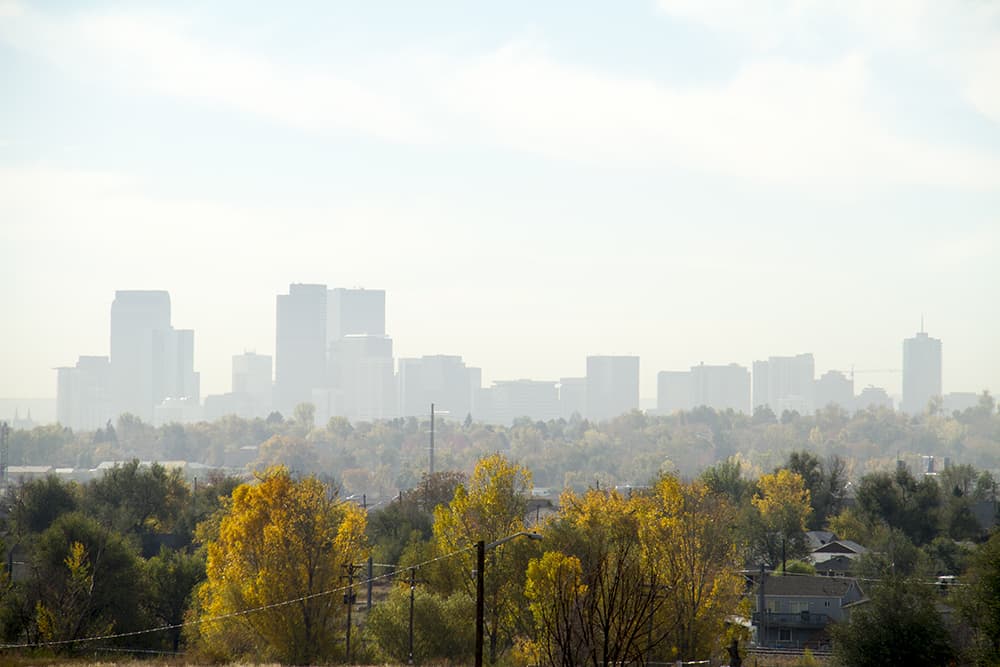A Denver City Council committee sent a tax on fossil-fuel-powered electricity and natural gas to a vote of the full city legislature Tuesday, but the pollution levy still lacks a key supporter.
Seven members, led by Council President Jolon Clark, want to ask voters for a tax on commercial and industrial energy users -- apartment buildings, office buildings, factories, even college campuses -- in November. It would raise about $43 million annually to ignite programs and policies that curb greenhouse gases and transition Denver to a greener economy.
The governance committee voted 4 to 3 to put the measure to a vote of the full city legislature. Council members Candi CdeBaca, Chris Hinds, Stacie Gilmore and Clark voted to advance the bill. Council members Kendra Black, Robin Kniech and Debbie Ortega voted against.
With seven co-sponsors, the tax measure has enough votes to pass, but it doesn't have support from Mayor Michael Hancock, who has the power to kill it with a veto. His office would not say whether he would kill the measure or not, should it pass.
In an email to council members, Hancock applauded the council's "bold and unprecedented" goals, but cited meager public input during the bill's crafting. Clark did not deny a rushed process -- he apologized to his colleagues -- but said the problem is too urgent to stall.
"I wish in 2017 when we stood up and said we were with (the) Paris (climate agreement), we had this bill. But we didn't," Clark said.
Some council members are skeptical of their colleagues' strategy.
A more processed version of a tax measure with more citywide input would pass more easily, Kniech said, even if voters would not see it until May. The councilwoman thinks Denver only gets "one bite of the apple" with a carbon tax, she said. Kniech does not want a rushed bill to rot it.
For example, single-family houses would not be taxed, even though they pollute more than multifamily structures. Twelve percent of Denver's greenhouse gas emissions come from single-family houses, compared to 10 percent from condo and apartment buildings.
In the meantime, she thinks Clark and company are leaving money on the table. The tax would not generate money until July 2020, but she thinks the immediate target is more money in the mayor's budget to battle climate change.
"My colleagues have created a political impetus and a great amount of leverage at the negotiating table," Kniech said.
Councilwoman Debbie Ortega told Denverite she worries tenants, including low-income renters, will end up shouldering the cost. She also questioned how Denver's electricity and natural gas provider, Xcel Energy, would handle the change.
The utility company would make things work if voters passed the tax, Xcel Regional Vice President Jerome Davis said. But the devil will be in the details, like whether customers would subsidize the cost of a new billing system.
If the carbon tax makes it on the ballot, expect strong opposition campaigns.
The commercial real estate industry opposes the bill, citing a lack of say in the process. In a letter to its members, the Colorado chapter of the NAIOP Commercial Real Estate Development Association urged them to talk council members out of the bill.
"Let's get together in advance, talk through these issues, and come up with sound and sustainable policies that address our changing climate without negatively impacting our quality of life," The letter stated. "This is the Denver Way."
A lack of communication and a short runway was a common complaint from city council members, the Hancock administration and other industry reps. But Councilwoman Gilmore wondered if bringing too many people to the table would water down the bill.
"If we wait and have a robust stakeholder process, are we looking at getting more or less to mitigate the effects of carbon?" she said.
In addition to the tax measure, the committee advanced a measure to create a new Office of Climate Action, Sustainability and Resiliency to elevate climate change policy in the Hancock administration.
The full City Council will vote on both bills later this month.













